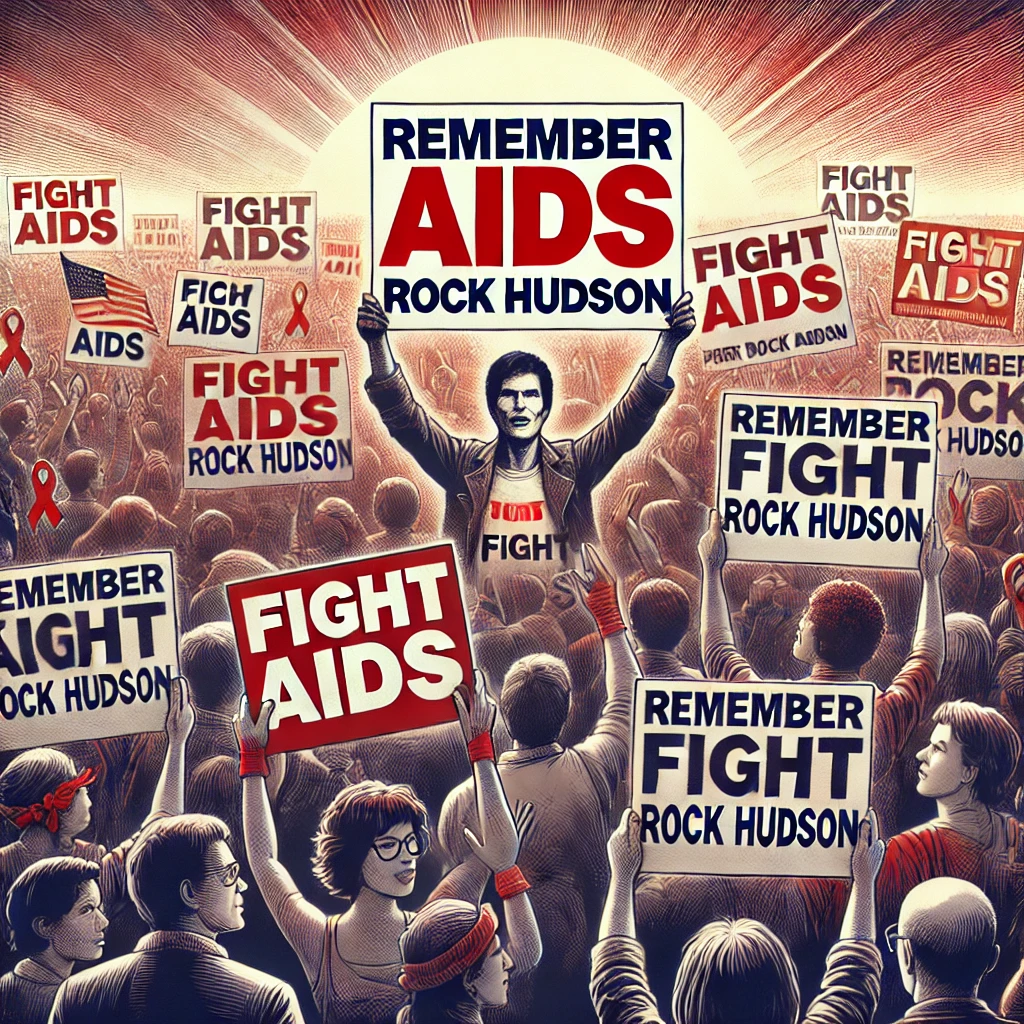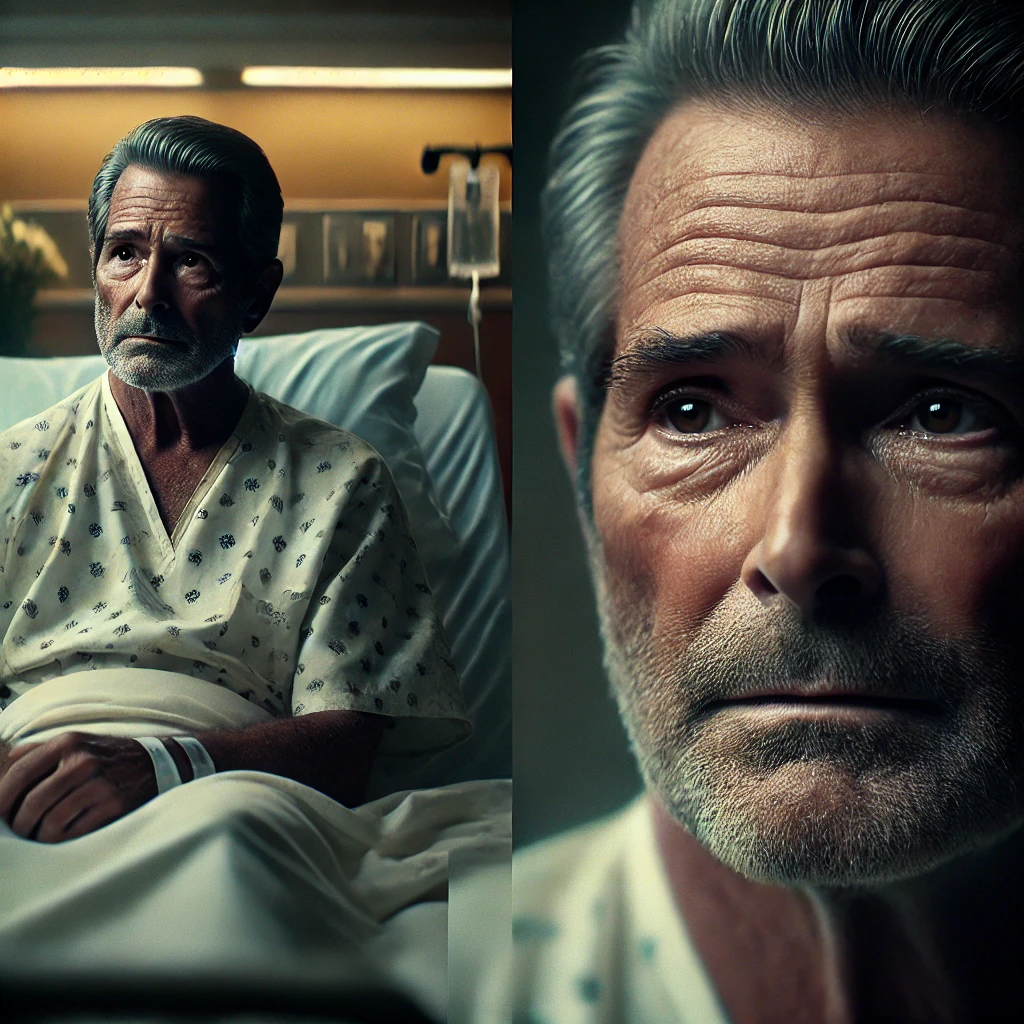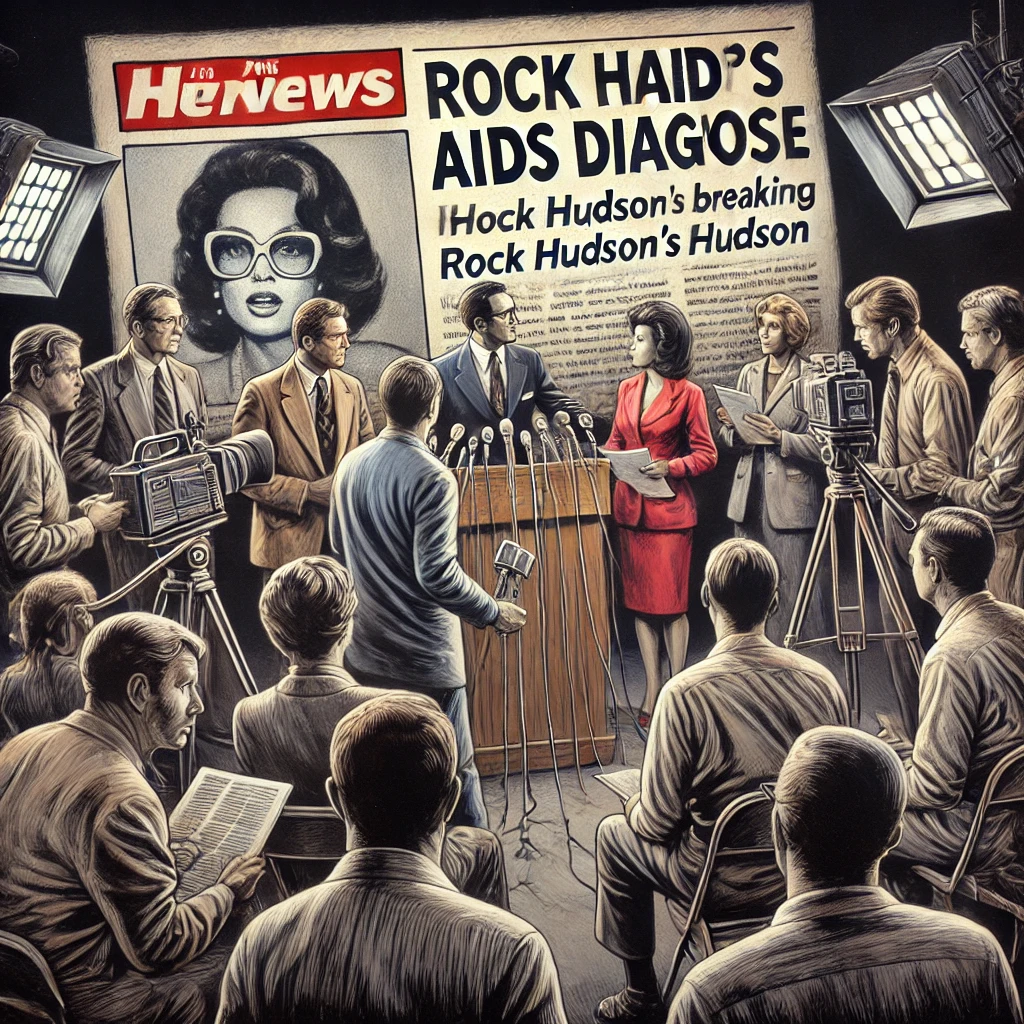On October 2, 1985, the world mourned the loss of Rock Hudson, the beloved Hollywood actor who became one of the first high-profile celebrities to die from AIDS-related complications. His passing marked a pivotal moment in the history of the AIDS epidemic, drawing significant media attention and raising awareness about the disease, which was largely stigmatized and misunderstood at the time.

A Star’s Life
Rock Hudson was a major leading man in Hollywood during the 1950s and 1960s, known for his charming demeanor and roles in films like Giant and Pillow Talk. Despite his success, Hudson struggled with the pressures of maintaining his public persona while hiding his sexual orientation in an era that was largely intolerant of homosexuality. This duplicity became even more poignant as he grappled with his diagnosis and the societal implications it carried.
In 1984, Hudson made headlines when he publicly announced that he had been diagnosed with AIDS. This announcement shocked the public and brought the disease into national consciousness. By putting a face to AIDS, Hudson helped to humanize those affected and challenged the prevailing stigma associated with the illness.
The Aftermath of His Death
Hudson’s death in 1985 had a profound impact on public perception of AIDS. The extensive media coverage that accompanied his passing brought attention to the urgent need for education, research, and funding to combat the epidemic. Many Americans who were previously uninformed about the realities of AIDS began to recognize the human cost of the disease.

In the wake of Hudson’s passing, advocacy groups gained momentum, and calls for action intensified. Organizations like the American Foundation for AIDS Research (amfAR) were established to raise funds and awareness for AIDS research and support for those living with the disease. Hudson’s death catalyzed a movement for change, fostering greater compassion and understanding in society.
A Legacy of Awareness
Rock Hudson’s legacy continues to influence discussions around AIDS and LGBTQ+ rights. His willingness to speak publicly about his illness helped to shift the narrative, encouraging others to share their experiences and seek help without fear of judgment. The visibility of his story prompted a cultural shift, leading to increased advocacy for better healthcare and resources for those affected by AIDS. The lessons learned from Hudson’s life and death remind us of the importance of empathy in addressing public health crises. Today, the ongoing fight against HIV/AIDS still benefits from the awareness and advocacy efforts sparked by Hudson’s story, emphasizing the need for compassion and support in combating stigma.

The death of Rock Hudson on October 2, 1985, marked a significant turning point in the fight against AIDS. His legacy serves as a powerful reminder of the challenges faced by those living with the disease and the need for ongoing advocacy and education. As society continues to confront issues of health and discrimination, Hudson’s story remains a call to action for understanding and solidarity in the pursuit of equality and dignity for all.
